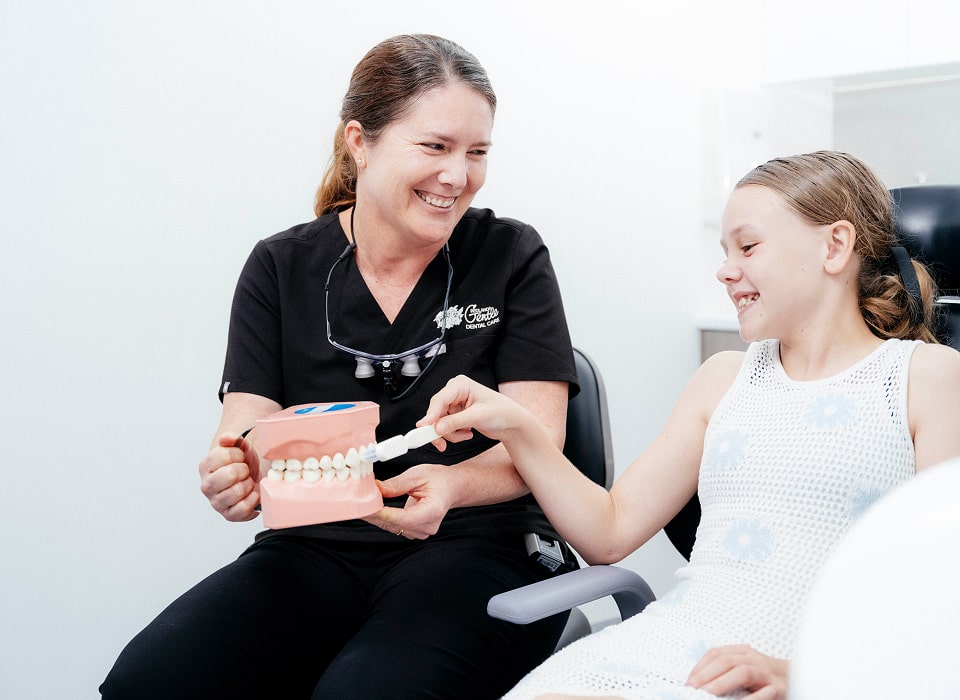Caring and Reliable Emergency Dentist for Immediate Toothache Relief and Protecting Oral Health
Why Choose Redlands Gentle Dental Care
Why Choose Us for Emergency Dental Care
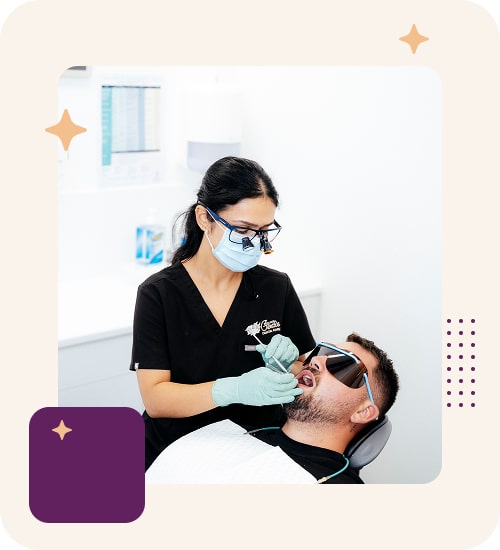
Accredited Emergency Dental Clinic Committed to Safety and Care
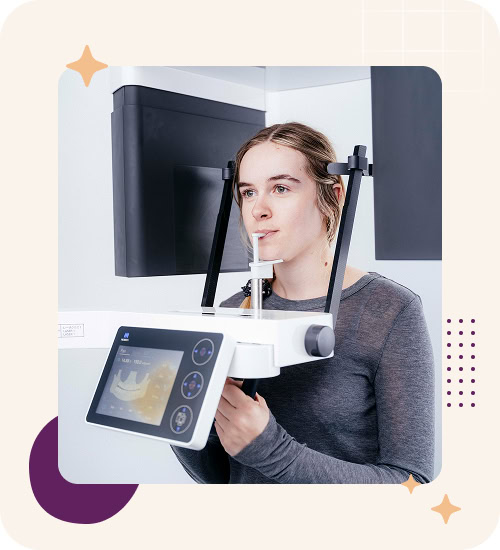
Advanced Technology for Quick and Accurate Emergency Diagnosis and Care
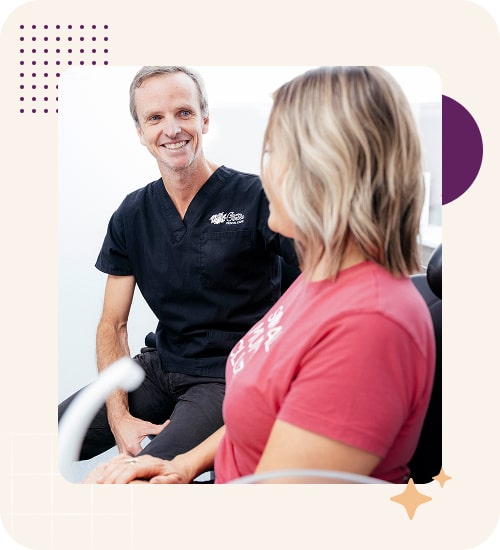
Over 40 Years of Experience Managing Dental Emergencies
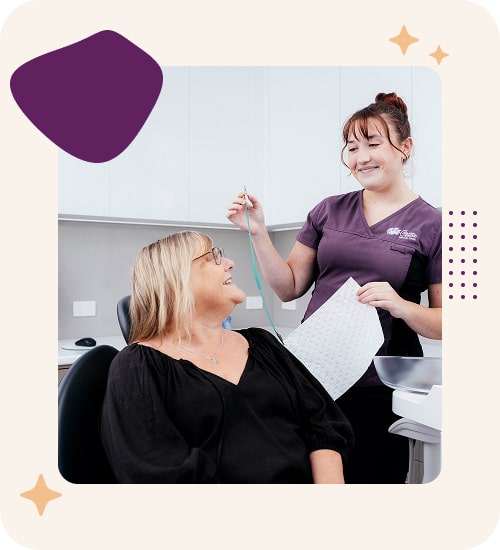
Flexible Payment Options for Emergency Dental Treatment
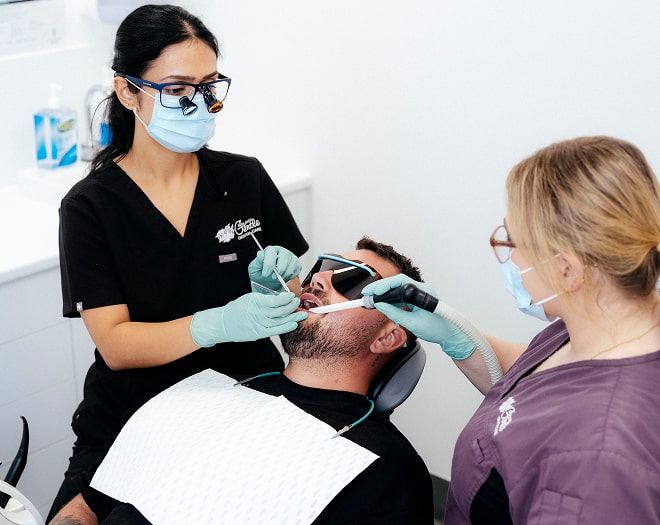
Gentle and Effective Emergency Dental Care When You Need It Most
Two Convenient Locations
Quality Dental Services Made Accessible for Families in the Victoria Point and Capalaba Areas
Capalaba Dental Clinic
- (07) 3245 5511
- 149 Old Cleveland Rd Capalaba, QLD, 4157
- Free Parking Available
Victoria Point Dental Clinic
- (07) 3820 7777
- 2/1 Bunker Road, Victoria Point, QLD, 4165
- Free Parking Available
Immediate Relief
Urgent Dental Care You Can Rely on From a Proficient Emergency Dentist
Say Goodbye to Tooth Pain with Emergency Treatment
Chipped or Broken Tooth? We’ll Restore It with Care and Precision
Providing Quick Treatment for a Knocked-Out Tooth
Urgent Care to Alleviate Painful Dental Abscess
Emergency Dental Care for a Broken Filling or Crown
Control Bleeding Gums with Prompt Dental Care

Experience the Difference of Gentle Care with Us
How We Can Help
Learn How an Emergency Dentist Can Address Your Dental Problem
I Have Missing Teeth
Our Payment Options
Find What Works for Your Financial Needs With Our Dental Payment Options
Child Dental Benefits Schedule
Invest in your child's smile with the Child Dental Benefits Schedule (CDBS). This government program offers eligible families financial support for essential dental services, promoting good oral health habits from an early age.
The CDBS covers up to $1,095 over two years for basic dental care like check-ups, cleanings, and fillings for children aged zero to 17. Eligibility depends on Medicare status and specific government payments, making quality dental care more accessible to families.
Learn MoreDental Services for DVA Card Holders
Veterans deserve high-quality dental care, and the Department of Veterans' Affairs (DVA) program delivers just that. The program offers dental benefits that vary based on card type.
Gold Card holders receive comprehensive cover for clinically necessary treatments, from routine check-ups to advanced procedures. White Card holders are covered for dental care related to accepted service-related conditions or mental health needs. Our clinic proudly supports veterans by providing high-quality dental care to maintain their overall health.
Learn MoreHumm
Simplify your dental care payments with Humm, a flexible financing option that lets you smile now and pay later. This interest-free payment plan allows you to spread the cost of your dental treatments over time, making essential care more accessible.
Humm is available for various dental services, from routine check-ups to more complex procedures. With instant approval and the ability to manage your account online, Humm helps you prioritise your oral health without financial stress.
Learn MoreZip
We offer Zip to help patients manage treatment costs. With credit limits between $1,000 and $50,000, eligible patients can select flexible repayment terms from three to 60 months, making it easier to manage costs.
Zip is ideal for anyone needing dental care without upfront costs. The user-friendly app allows you to track payments easily, so you can stay on budget while prioritising your oral health.
Learn MoreSuperCare
With the help of SuperCare, eligible patients can release their superannuation funds early to access essential dental procedures. This option is suitable for families lacking sufficient health funds or available resources, covering services such as orthodontics, implants, and root canal therapies.
SuperCare's consultants guide you through the straightforward application process, simplifying what can often be complex. This service enables you to prioritise your family's oral health without the burden of upfront costs.
Learn MoreAfterPay
Experience the convenience of dental care with Afterpay, allowing you to receive treatments now and pay later in four easy instalments over six weeks. This payment option is available to anyone over 18, a practical choice for adults looking to enhance and maintain oral health.
With no interest charges when payments are made on time, Afterpay promotes responsible budgeting. Payments are automatically deducted from your linked debit or credit card for a smooth experience.
Learn MoreBupa Preferred Provider
Enjoy exclusive benefits and hassle-free claims when you choose our clinic, a Bupa Preferred Provider, for your dental health needs. Our patients can access a comprehensive range of services, including check-ups and major procedures, often at reduced out-of-pocket costs.
Members First Ultimate also offers 100% back on two dental check-ups and cleans every six months, making regular oral care more affordable. Our partnership with Bupa allows you to receive quality care while maximising your benefits.
Learn MoreHCF Preferred Provider
Experience affordable, high-quality dental care at Redlands Gentle Dental Care. As an HCF preferred provider, patients with eligible dental cover can access reduced out-of-pocket costs, no-gap services for selected treatments, and streamlined claims processing.
HCF members can take advantage of these benefits by choosing our clinic for their dental needs. Check your policy to understand covered treatments and annual limits, and let us help you achieve a healthier, brighter smile.
Learn Morenib Preferred Provider
Access professional dental care at our clinic, a trusted part of nib's First Choice network. As a nib Preferred Provider, we offer members the opportunity to receive quality dental care at agreed rates. This provides a transparent and straightforward experience for your dental needs.
Nib members benefit from reduced out-of-pocket costs and simplified claims processes at our clinic. To make the most of your cover, review your policy for applicable limits and service inclusions.
Learn MoreInsights About Dental Emergencies
Frequently Asked Questions
What is considered a dental emergency?
A dental emergency is any situation requiring prompt attention to relieve severe pain or prevent long-term damage. You should seek immediate care to protect your oral health and prevent complications. Common situations that need urgent dental care include the following:
- Severe Pain:
Persistent or intense pain that doesn’t improve with over-the-counter medications may indicate infection, abscess, or deep decay needing immediate attention. - Traumatic Dental Injuries:
This includes broken, cracked, or knocked-out teeth that need quick action to preserve their structure and function. - Intense Swelling:
Significant swelling in the gums, face, or jaw indicates a serious infection requiring urgent care. - Active Bleeding:
Continuous bleeding that doesn’t respond to applied pressure is a critical issue. - Loose or Missing Restorations:
Loose or missing crowns or fillings can expose sensitive areas, causing discomfort or further damage.
When these situations occur, accessing emergency dental treatment promptly is crucial. Acting within the initial hours can be vital, especially for knocked-out teeth or infections. If you’re unsure whether your case qualifies as an emergency, seek dental advice. A nearby clinic can evaluate your situation and provide the care you need.
How can I tell if my toothache is serious?
To determine if your toothache is serious, look for the following warning signs and symptoms:
- Painful Toothache:
Intense, throbbing pain lasting more than 24 hours may indicate a dental emergency. If the dental pain doesn’t improve with over-the-counter medications, a professional evaluation is necessary. - Infection Symptoms:
Tooth pain combined with fever, facial swelling, or tender lymph nodes may indicate a potentially dangerous condition. Such symptoms require immediate attention from a dental professional. - Disrupted Daily Functions:
When tooth pain prevents you from sleeping, eating, or concentrating, your condition requires urgent assessment. - Physical Warning Signs:
Swollen gums around a painful tooth can signal a significant underlying issue. Additional signs include a foul taste in your mouth, extreme temperature sensitivity, or sharp pain when biting.
A dental emergency becomes critical if swelling begins to affect your breathing or swallowing abilities. At Redlands Gentle Dental Care, we understand how challenging it can be to determine if your toothache needs urgent care. Our team of experienced dentists can quickly assess your symptoms and provide an appropriate treatment plan before the condition worsens. We deliver effective treatment during your emergency appointment by conducting a comprehensive assessment of your symptoms.
What are the signs that my tooth is decaying?
Tooth decay can be recognised by several clear warning signs that may necessitate emergency dental treatment. Look for these essential symptoms:
- Visual Changes:
Dark spots, holes, or pits in your tooth surface indicate active tooth decay that requires dental evaluation. - Sensitivity Issues:
Sensitivity to hot, cold, or sweet foods—particularly if the discomfort persists after the stimulus is removed—may suggest that the decay is affecting the tooth’s nerve. - Pain Symptoms:
Tooth discomfort when biting down, sudden pain, or a continuous dull ache may indicate that decay is penetrating into the deeper layers of the tooth.
At Redlands Gentle Dental Care, we understand that early detection of tooth decay is crucial for successful treatment. Our team of qualified dentists can thoroughly examine any concerning symptoms and provide personalised care to help maintain your dental health and prevent further decay.
What can I do if tooth pain is unbearable?
Severe tooth pain can significantly impact your daily life and may indicate serious underlying issues. Here are steps to take to manage unbearable tooth pain during a dental emergency:
- Salt Water Rinse:
Mix one teaspoon of salt in warm water and rinse for 30 seconds to reduce inflammation and provide temporary relief. - Cold Compress Application:
Apply a cold compress wrapped in a clean cloth to your cheek at 10-minute intervals. This can help reduce swelling and numb the painful area. - Dental Pain Medication:
Take appropriate over-the-counter pain relievers for temporary relief. - Food and Drink Management:
Avoid triggers like hard candy, coffee, and acidic foods that can intensify the pain. Stick to soft foods until you can see a dental professional. - Professional Patient-Centred Care:
See a dentist as soon as possible. Seeking urgent dental care will help address the cause of your pain. It will also provide the relief you need to restore your comfort.
At Redlands Gentle Dental Care, we understand how debilitating tooth pain can be. Our team will quickly assess your dental emergency and provide prompt treatment with quality care. We focus on addressing the source of your pain and restoring your comfort.
What should I do if a tooth is knocked out?
When a tooth is knocked out, immediate action within 30 minutes gives you the chance of keeping the tooth. Here are the important steps to do that can help preserve your natural teeth:
- Tooth Recovery:
Pick up the tooth by the crown (white part) only. Avoid touching the root. Doing so can damage vital tissues needed for reattachment. - Gentle Cleaning:
Quickly rinse the tooth in cold running water for no more than 10 seconds to remove dirt or debris. Avoid prolonged exposure to water, and do not use soap or any cleaning products. Do not scrub the tooth, especially the root, to prevent damage to the root cells. - Immediate Placement:
Try to reinsert the tooth into its socket, holding it by the crown. Bite down gently on a clean piece of cloth to hold it in place. - Moisture Protection:
If reinsertion isn’t possible, store the tooth in milk or place it between your cheek and gums. Alternatively, use an emergency tooth preservation kit, if available, to maintain the tooth’s viability.
Time is critical when dealing with a knocked-out tooth. Seeking urgent dental care increases the chances of reattachment and restoring your smile.
What should I do if I lose a filling or crown?
A lost filling or crown requires immediate attention to protect your tooth from further damage. Here are the actions to take:
- Careful Recovery:
If you feel like the filling or crown is loose and can be taken out of the tooth, remove it from your mouth immediately to prevent accidental swallowing. Store it in a clean container so your dentist can inspect it. - Area Protection:
Rinse your mouth gently with warm salt water to clean the exposed area. This will help remove any debris that could cause further irritation or damage. - Pain Relief:
Take appropriate over-the-counter pain medication to manage discomfort until you can see a dental professional.
Taking preventative care measures after losing a filling or crown reduces the risk of sensitivity and infection. Quick action helps protect your exposed teeth from sensitivity and further damage.
What does a tooth abscess look like?
A tooth abscess appears as a pimple-like bump on your gum that may be red, swollen, and filled with pus. You may notice a raised bump near the affected tooth’s root or along the gumline. This may be accompanied by visible swelling in your face, jaw, or neck area.
In addition to its appearance, bad breath and a foul taste in your mouth may also occur. If the abscess ruptures, you may notice a sudden release of salty, foul-tasting fluid. However, this doesn’t mean the infection is gone – professional treatment is still necessary to address the underlying infection.
What will an emergency dentist do to address a tooth infection?
A tooth infection can be painful and potentially dangerous if not addressed. Here are the steps an emergency dentist will take to diagnose and address your condition:
- Thorough Examination:
Assess your symptoms by visually inspecting the area and gently tapping the affected tooth. Dental X-rays can also help determine the infection’s extent and location. - Infection Control:
Drain any abscess by making a small incision and clean the area with a saline solution to remove accumulated pus. - Root Canal Treatment:
Remove the infected pulp inside the tooth, clean the root canals thoroughly, and seal them to prevent reinfection. - Tooth Extraction:
If the tooth is too damaged to save, carefully extract it to stop the infection from spreading. - Medication Management:
Prescribe antibiotics if the infection has spread beyond the tooth area or if you have a weakened immune system.
At Redlands Gentle Dental Care, we understand the urgency of addressing tooth infections. Our team of dentists has experience in providing immediate and effective treatment to relieve your pain. We work to prevent the infection from spreading to other parts of your body.
Does tooth extraction hurt?
Tooth extraction is a common dental procedure, and concerns about pain are understandable. Here’s a breakdown of what to expect regarding pain during and after the extraction.
Pain During Tooth Extraction
- Anaesthesia Use:
Dentists typically administer local anaesthesia before the procedure to numb the area around the tooth. This means patients should not feel pain during the extraction itself, although they may experience some pressure or discomfort as the dentist works to remove the tooth. - Sedation Options:
In more complex cases, such as wisdom tooth extractions, sedation may be used to help manage anxiety and discomfort.
Pain After Tooth Extraction
- Immediate Post-Extraction:
After the anaesthesia wears off, it is normal to experience some pain at the extraction site. This discomfort usually peaks within the first 24 to 48 hours and can be managed with over-the-counter pain relief medications. - Duration of Pain:
Most patients report that pain diminishes significantly within a few days. Typically, normal pain lasts about three days post-extraction, with many experiencing minimal discomfort by the end of the first week 23. However, some sensitivity may linger longer depending on individual healing processes and the complexity of the extraction.
While tooth extractions can involve some pain and discomfort, effective pain management techniques are in place to provide patients with a relatively comfortable experience during emergency dental treatment. If pain persists beyond what is expected or worsens, it’s important to consult with your dentist for further evaluation.
Why is it important to address a dental emergency quickly?
A dental emergency requires immediate attention for several important reasons. Here are the key reasons to seek dentist care without delay:
- Pain Management:
Swift action can significantly reduce the duration and intensity of pain in dental emergencies. This improves your overall comfort and well-being. - Prevent Infection Spread:
Dental infections can progress rapidly, potentially spreading to other parts of your body. This can lead to more serious health complications if not addressed. - Preserve Natural Teeth:
Quick intervention increases the chances of saving damaged or knocked-out teeth. This helps maintain your natural smile and avoids the need for more extensive dental procedures. - Minimise Treatment Complexity:
Addressing issues early often means simpler, less invasive procedures, potentially saving you time and money in the long run. - Avoid Systemic Health Risks:
Some dental emergencies, if neglected, can lead to systemic health problems affecting your heart, lungs, or other organs.
Seeking urgent care from an emergency dentist promptly can make a significant difference in your oral and overall health outcomes. Dental issues don’t settle on their own and often worsen with time, so immediate attention is essential for optimal recovery.
